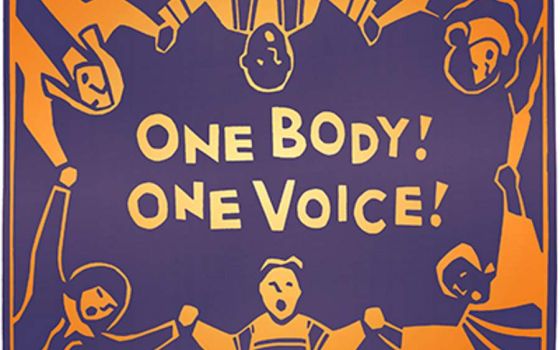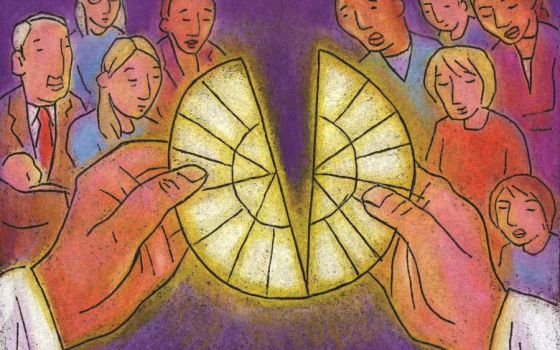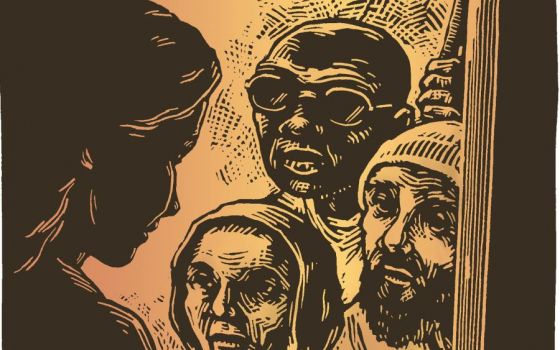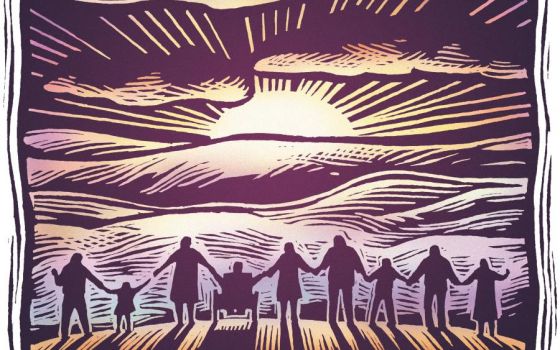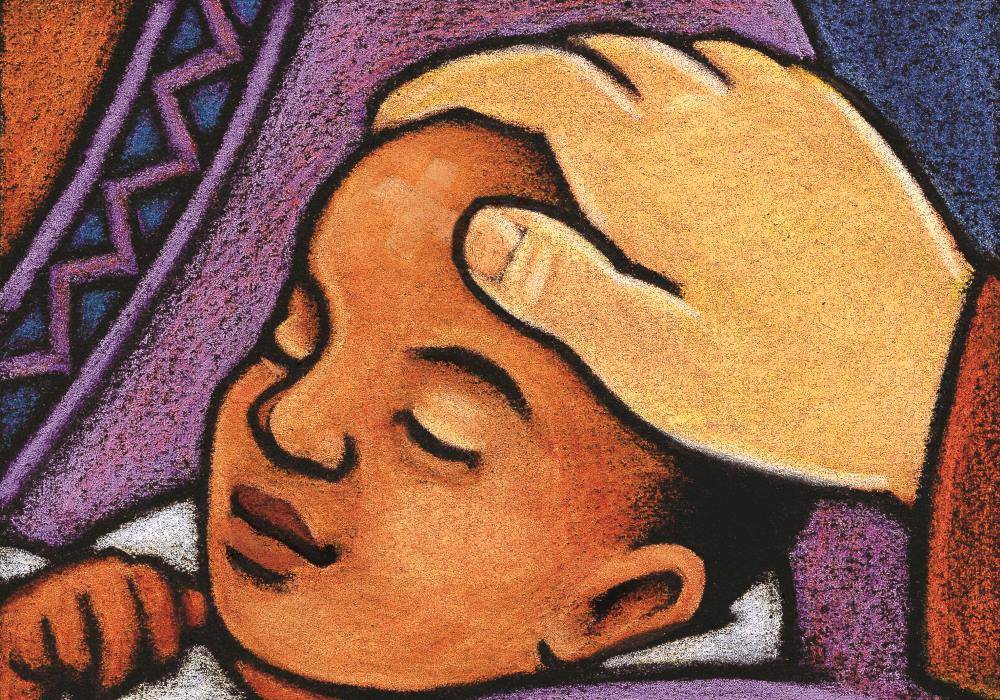
(Julie Lonneman)
We recently baptized our third grandchild, and we are saying thank you for the blessing of her birth: her birth into this family and her birth into the body of Christ.
We gathered, friends and family, near the entrance of the church as the baptism began. I waited as I always do for someone to break down and laugh — though no one ever dares — when the presider asks the parents, early in the rite, "Do you clearly understand what you are undertaking?" It is the funniest line in the rite, and a natural exit line.
"No!" I imagine the parents screaming as they run from the font. "We can't even get her to sleep. What makes you think we have a clue how to raise her in faith?"
Instead, my daughter and her husband grow pale, her eyes filling with tears and his voice trembling as they answer, "We do." They are the parents both of this calm infant and of the 2-year-old boy running his Matchbox racer over the back of the oak pew, yelling, "Vroom, vroom," as his grandparents and godparents and aunts and uncles whisper, "Ssshh."
"Vroom — Ssshh — Vroom — Ssshh." It is a hymn I know well from years at Mass with exuberant toddlers. But my adult children are just learning. They are learning how clearly they do not understand what they have undertaken. "Me neither," I want to say, "me neither." Still, I am grateful that we didn't let our lack of understanding keep us from making the journey upon which these two have embarked.
Baptism assures us — and this is key, this is what makes the foolhardy attempt to raise Christians possible — that we do not make that journey alone. We make the journey in the church, with the church, those living and those who have gone before us in faith keeping stride and holding us up when we falter, picking us up when we fall. It is the church who asks, "What name do you give this child?" It is the church, "the Christian community," who calls the child by name and "welcomes her with great joy." It is the church who claims her for Christ and marks her with the sign of her first and final belonging, the cross.
I witness the rite and I am filled with wonder. I think of the deepest human fears: that we will be unknown and unclaimed. That we will be strangers, never welcomed, never called by name. That we will stand naked in the world, untouched, dirty, alone in the dark. That we will have no story to tell, because there is no story being told to us.
I remember a friend whose husband taught English in the Cook County Juvenile Jail. Mostly, she said, he read stories aloud to the young killers and thieves and drug dealers behind the bars. He explained that most of them had never been read to, had never heard the human voice in any context other than anger or commands. They had no stories but those of violence and abuse, of shame and failure. So he read aloud to them, a father's voice against the darkness, stories about brave youngest brothers and toads who are more than they appear and princesses as good as they are beautiful.
Advertisement
I listen to the words of the rite. I watch the graceful gestures of the sacrament. Anna is named and welcomed. A cloud of witnesses pledge to walk with her on her way to God. She hears the story — heartbreaking and glorious — of her family in faith, a story she now joins, a story that is now hers.
Anna is anointed with fragrant oil and bathed, lowered carefully, held tight, into the waters. She is anointed once again, as a king might be prepared to meet his people, as a bride for her bridegroom, as an athlete for the race.
She is clothed in white, the long linen dress falling over her mother's arms. She is given a lighted candle, as we pray that she might "walk always as a child of the light," that she may "keep the flame of faith alive in her heart." We promise to help. We promise to walk on paths she can follow. We promise to lead her home.
Her parents are blessed. We gather around them, touching them, as the church prays that "they be … the best of teachers, bearing witness to the faith by what they say and do." Many of us who stand beside these young parents are older mothers and fathers. Some of our children are dead or lost. Some of our children walk the path of faith with a surer foot than their parents, their first teachers in faith. Some of us weep now, and some of us smile. All of us say, "Amen, amen. May it be so."
Editor's note: This reflection was originally published in the March 2006 issue of Celebration. Sign up to receive daily Easter reflections.





